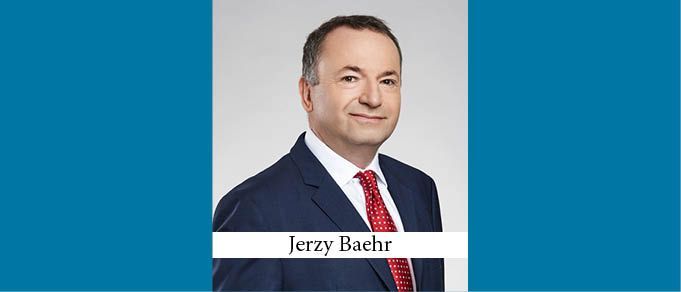I love my profession. It has given me the privilege of being a witness to and an active participant in the significant changes which have unfolded in Poland over the last 30 years. I graduated in 1985 when the Polish economy was socialist. Nothing at that time could lead one to realistically expect that the socialist regime would fall in a few years, with Poland becoming a free country. When I went to study in Oxford in 1988, I left a socialist Poland, only to return to a Poland already on its path to a free market economy.
Socialist Poland had no corporations, only state-owned enterprises; it had no concept of shares or shareholders. My Oxford studies on company law and employee share ownership proved helpful when I became an expert for the Ownership Transformation Board advising the Prime Minister.
I believe that a lawyer needs to develop a thorough understanding of lawyering by taking up various roles and learning the ins and outs of the profession. After graduating, I completed formal judge training, although I never became a judge. I was admitted to practice as a legal counsel. The fifteen years I spent as a faculty member in the Department of Civil and Commercial Law at the Poznan University, including my time working on my PhD dissertation, let me build a toolbox for in-depth legal analysis that is now so important in providing advice. Since the early 1990s, I have advised various corporations or served on their supervisory boards and, in this way, I have developed a good understanding of business and corporate realities. My involvement in numerous governmental projects and work for parliamentary committees has given me insight into the law-making process, which is also of great value.
In addition, I appreciate the several years I worked in a law office affiliated with one of the Big Four firms, which was when the word “partner” first appeared on my business card. This deepened my realization that lawyering is a service, and that it is the quality of your business advice that matters, and not how many footnotes or Latin maxims your legal advice contains. Crucially, I recognized that to provide top-quality legal services the lawyer is required to understand the client’s business. That was also when the idea struck me to create a team of energy lawyers, which is the sort of advisory work I have been doing for over 20 years now, and successfully so, if you go by Chambers and Legal500 rankings. More often than not, a good understanding of my clients’ business and the applicable regulatory environments has given me a competitive advantage. For example, it allows me to bring them various opportunities – and, if I am convincing enough, the client usually retains us for implementation. In contrast, increasingly, when a client on its own identifies a need for legal assistance, it can be expected to launch a beauty contest and request proposals from several firms.
The last 30 years did not just involve a quantum leap from socialism to capitalism, but also the milestone of Poland’s 2004 accession to the European Union, resulting in wide-ranging changes in all areas of law.
Recent times have seen a fundamental change in the relationship between law firms and in-house counsel. In the 1990s and early 2000s, an academic background, a good command of English, and knowledge of EU legislation usually gave law firm partners an edge over in-house lawyers. This is rare now. Corporate legal directors of today typically have an excellent education, speak foreign languages, know EU law, and, importantly, have significant business experience.
As a result, General Counsel are increasingly-demanding business partners, especially after the last global financial crisis. Unlike before, they now expect law firms to accept fee budgets or caps and to take risks they previously did not incur. The challenge for law firms is to rise to such increased expectations. As the Managing Partner of a leading Polish law firm, I think the key job for me and my partners is to create opportunities for the best young lawyers who want to work for us and join us in facing the new challenges.
My generation knew we had to work very hard to close the gap between the old and the new system as quickly as possible. Today’s legal graduates are millennials with a different view of the work-life balance than we once had. Reason and good will are usually enough to work out any differences.
The environment and technological setting for legal services are changing. But, more importantly, the job continues to offer plenty of joy and satisfaction.
By Jerzy Baehr, Managing Partner, Wiercinski, Kwiecinski, Baehr
This Article was originally published in Issue 5.9 of the CEE Legal Matters Magazine. If you would like to receive a hard copy of the magazine, you can subscribe here.
